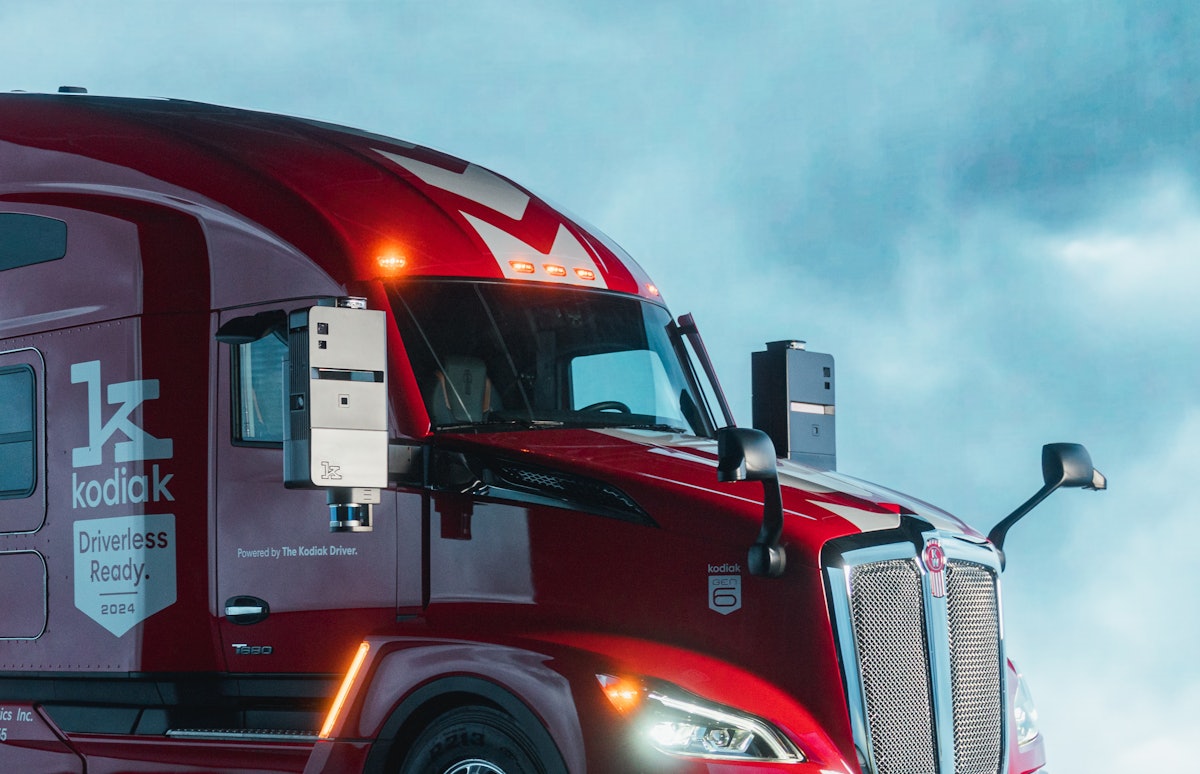
Trucking news and briefs for Monday, July 8, 2024:
California legislation requiring operator in autonomous trucks again breezing through legislature
Lawmakers in California are once again moving ahead with legislation that would restrict the use of true driverless autonomous trucks in the state.
Last year, the California legislature passed a bill that would have required a human operator to be inside an autonomous heavy-duty vehicle while it is operating on public roads in the state. California Gov. Gavin Newsom vetoed the legislation, saying it was “unnecessary for the regulation and oversight of heavy-duty autonomous vehicle technology in California, as existing law provides sufficient authority to create the appropriate regulatory framework.”
An identical bill is once again moving through the state’s legislature, having passed the state Assembly by an overwhelming 63-4 vote on May 21. On June 25, the bill passed the state’s Senate Transportation Committee by an 11-1 vote and will move to the Senate Appropriations Committee next.
The Teamsters union has voiced support for the legislation, while autonomous technology stakeholders have opposed the bill.
“I’m dumbfounded that the opposition makes the arguments that this bill limits the opportunity for them to cut ‘costs,’” said California Rep. Cecilia Aguiar-Curry, the bill’s author. “Those ‘costs’ are humans in the trucking industry, and the price [California’s] public will pay for tech companies’ mistakes is our families’, friends’, and neighbors’ safety. Our professional truck drivers are the stewards of our highways, not entries on a balance sheet. They have actually testified publicly that the industry cares more about profits than the safety of our constituents on public streets and highways.”
A separate bill moving through California’s legislature would require a manufacturer of autonomous vehicles to report to the California Department of Motor Vehicles a vehicle collision, traffic citation, or disengagement that occurs when a manufacturer’s vehicle is operating in autonomous mode in the state.
Like the bill requiring a human safety operator inside an autonomous truck, this bill also overwhelmingly passed the California Assembly with a 61-3 vote, and passed the Senate Transportation Committee by a 11-2 vote. The Senate Energy, Utilities and Communications Committee will now review and vote on the bill.
[Related: Kentucky lawmakers override veto of autonomous vehicle legislation]
Volvo, Westport celebrate official launch of joint venture partnership
Volvo Group and Westport Fuel Systems on July 5 marked a defining moment in the journey of the newly formed joint venture as the two companies celebrated the official launch of their partnership with an exclusive event at the University of British Columbia, the birthplace of Westport’s High Pressure Direct Injection {HPDI) fuel system technology.
The HPDI fuel system reduces carbon dioxide emissions in trucking by replacing diesel with carbon-neutral or zero-carbon fuels like biogas or hydrogen.
The two companies are coming together to jointly promote, develop and further accelerate the commercialization of the HPDI technology. In doing so, the JV will focus on moving forward affordable, sustainable transportation solutions using the internal combustion engine operating on renewable fuels now and hydrogen in the future.
“This joint venture is poised to make a significant impact on global long-haul and off-road heavy-duty applications,” said Dan Sceli, CEO and Director of Westport Fuel Systems, and interim President of the Volvo/Westport JV. “By combining Volvo’s extensive expertise in commercial vehicle and power system manufacturing with Westport’s innovative fuel system technology, we are creating a powerful force for change that can make a meaningful contribution to reduce carbon emissions immediately and affordably. Together we are committed to delivering sustainable, efficient, and economically viable solutions for long-haul transportation.”
Collaboration with transportation partners and end-users has led to the deployment of the HPDI system in thousands of Volvo trucks across Europe, underscoring its effectiveness in achieving carbon neutrality. Since the commercial release of HPDI in 2018, fleets have collectively avoided hundreds of thousands of tons of CO2emissions annually. This success demonstrates the immediate impact of integrating hydrogen and biogas technologies into existing infrastructure, the companies said.
[Related: Volvo, Westport enter joint venture]